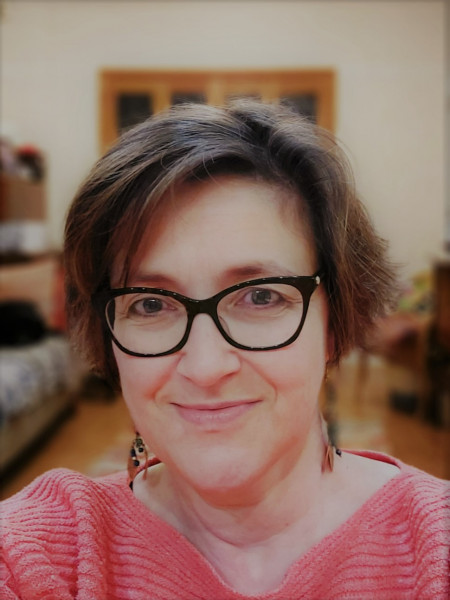
Dr Alison Loughlin
Senior Lecturer In Biology
School of Life, Health & Chemical Sciences
Biography
Professional biography
I graduated with a degree in Biochemistry from University of Bristol in 1989 and completed a PhD on the role of microglia in multiple sclerosis at the Institute of Neurology (UCL) in 1993. After a series of post-doctoral research positions at the Institute of Neurology, University of Kent and University of Oxford, I joined the Open University in 1999 as a research lecturer and became a senior lecturer in 2005.
Other roles: LHCS Director of Teaching
Research interests
Educational research interests:
- closing awarding gaps
- student peer support
- assessment design
Laboratory research interests:
- oligodendrocyte and myelin biology
- CNS demyelinating conditions and neuroinflammation
- microglial cell biology
- hypoxia /ischaemia and white matter injury
- membrane lipid rafts
- using 3-dimensional tissue culture systems to model complex tissues and cellular organisation
- 3-dimensional neural cell culture models
Teaching interests
- Teaching in the areas of biochemistry and cell biology.
- Use of virtual onscreen experiments to support and enhance laboratory practicals.
- Accessibility of teaching materials and processes
- Current modules: S296 (Cell and Molecular Biology)
Projects
Investigation into the molecular mechanisms underlying idiopathic intracranial hypertension (IIH) (SB-12-083-IR)
IIH is a neurological condition characterized by increased intracranial pressure in the absence of a tumor or other diseases but whose cause remains elusive although a possible role for leptin and inflammatory mediators such as CCL2 has been suggested. The objectives for this project are: Year 1 (to be based at KCL). To determine, first, the protein composition of CSF from IIH and control patients using proteomic analysis and, second, the effect of IIH CSF on the secretory and transport activity of cultures of porcine choroid plexus epithelium Year 2 (to be based at the OU with occasional trips to Sheffield). First, to establish an in vitro human model of the blood-CSF barrier and, second, to determine , using transcriptomic analysis, the effect of CSF from IIH and control patients on gene profile of cultures of human choroid plexus epithelium (both cell lines and primary cultures) Year 3 (based at the OU). To select candidates from the proteomic/transcriptomic analysis that are differentially regulated in IIH CSF/choroid plexus epithelium and investigate their effects on the secretory and transport activity of human choroid plexus epithelium in order to identify potential therapeutic molecular targets mediating these effects
Publications
Journal Article
Cerebrospinal fluid dynamics modulation by diet and cytokines in rats. (2020)
Gold nanocarriers for transport of oligonucleotides across brain endothelial cells (2020)
Adapting tissue-engineered in vitro CNS models for high-throughput study of neurodegeneration (2017)
Engineered neural tissue for peripheral nerve repair (2013)
Fuelling an immune response: an ultrastructural study of immune-stimulated lymph nodes (2013)
Developing a 3D culture model of CNS myelination (2009)
Regulation of chemokine receptor expression in human microglia and astrocytes (2003)
Myelination and remyelination of aggregate rat brain cell cultures enriched with macrophages (1997)
Patent
Presentation / Conference
Adapting aligned, stabilised 3D tissues for large-scale neurobiological research (2014)
Adipocytes: a role in immunological memory? (2013)
Defining glial cell self-alignment parameters for 3D CNS tissue models (2012)
Aligned Schwann cells within 3D tissue-like gels provide guidance to regenerating neurites (2011)
Aligned cellular and acellular collagen guidance substrates for peripheral nerve repair (2011)
Plastic compression of aligned cellular collagen gels for nervous system repair (2010)
Three-dimensional adipocyte cultures and co-cultures to study tissue interactions (2009)
Development of a 3D coculture system to study adipocyte and lymph node cell interactions (2006)